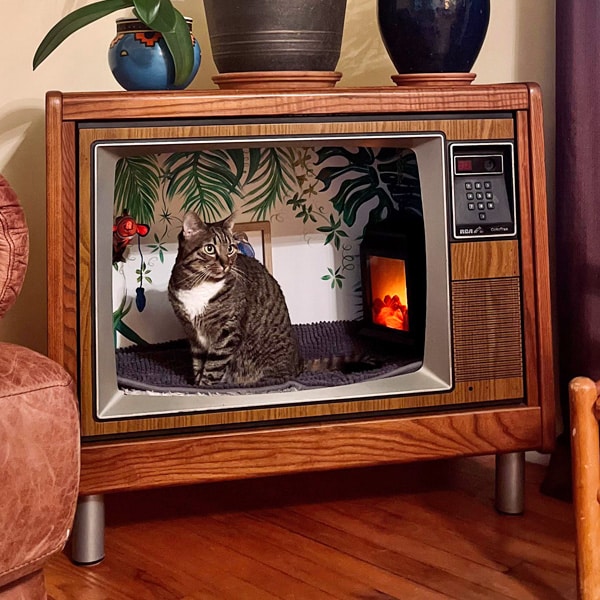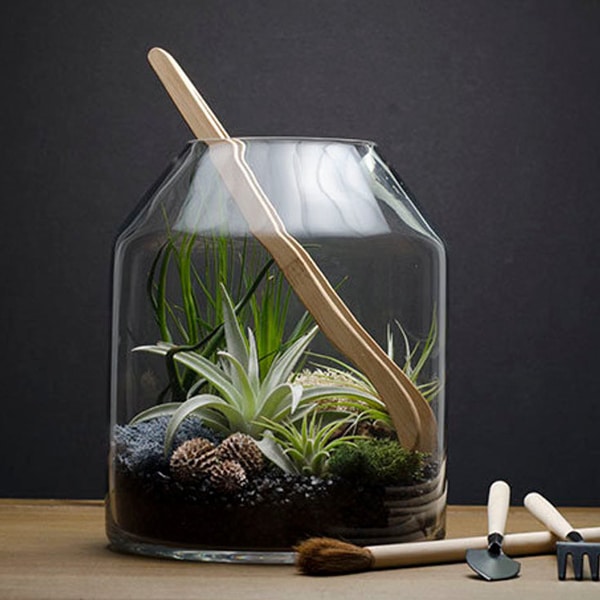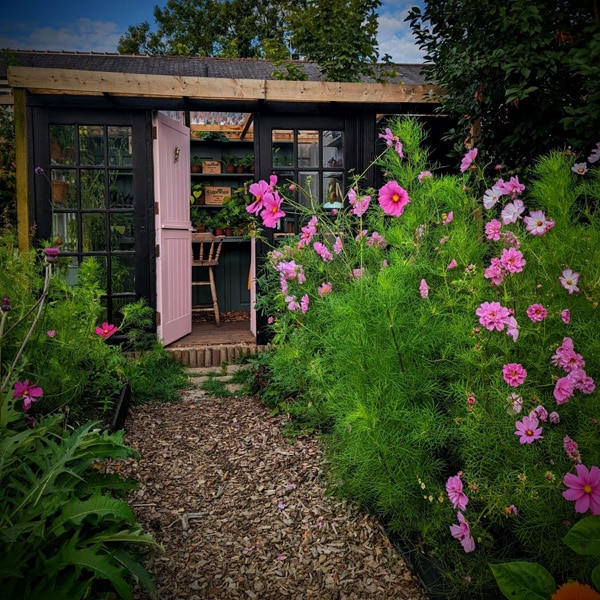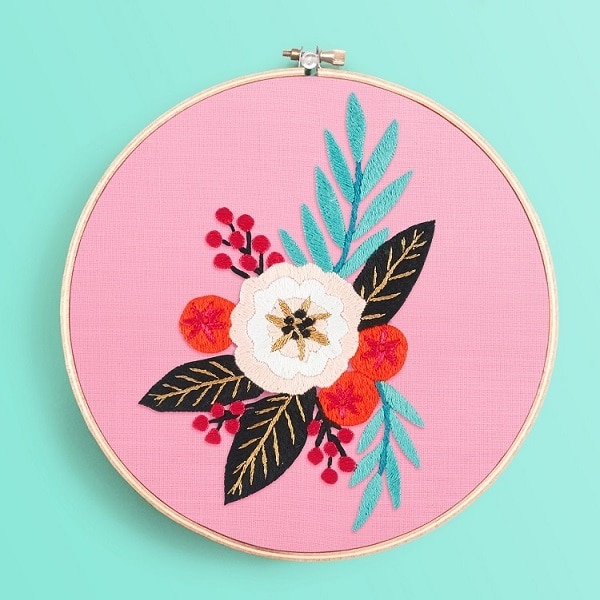
Photo: Thought Catalog
We’re so used to texting and typing, but when was the last time you wrote something down? Journaling is a great exercise whether you simply want to record your day, write down your goals, or you'd like to ruminate on a larger issue. Filling a notebook with your thoughts is always a worthwhile pursuit that can give you mental clarity on both the big and small things in your life.
The sky's the limit when it comes to journaling topics. While this is exciting and ultimately freeing, it can feel overwhelming as a blank page stares you in the face. Well, let us help. If you’re in need of some journaling ideas to get started, we’ve come up with 15 prompts that will get you writing on a daily basis.
Scroll down for ideas that will encourage you to start writing. Don’t be afraid to get creative and riff on these prompts or even express yourself through art. You could turn your writing journal into a personal art notebook, too.
Want to start writing in a notebook? Check out these journaling ideas to get you started.
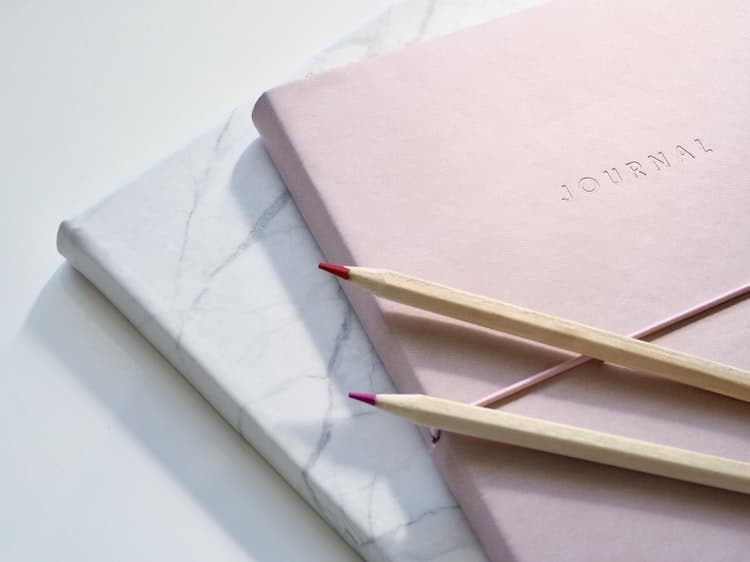
Photo: Jess Bailey
- Reflect on a quote you like. Everyone has a quote that means something to them; they read it and instantly feel a connection to it. Select a quote that you like and reflect on why you like the phrase so much. What does it mean to you? What can you learn from it?
- Answer a question. Is there a question that you’ve been dwelling on? It doesn’t have to be as big as “What’s the meaning of life?” but writing it down and thinking it through on paper will help you answer it.
- Practice gratitude. Cultivating gratitude can help you to be an overall happier person. One way to do that is to write down the things you’re grateful for each day. This can be big—such as a colleague who helped you finish a project—or small—the feeling of a warm cup of tea in your hands.
- Write about a goal (or goals) you have. You are more likely to achieve your goals if you write them down. Spend some time writing about what you’d like to attain and the smaller steps that will help you along the way.
- Memorialize big events. Memory fades over time. Make sure that you don’t forget a thing by memorializing big events in your journal. Set the scene. Who was there? What was special about the event? What is something about it that you’d like to always remember? When you read it back, you’ll think it was just yesterday that you were there.
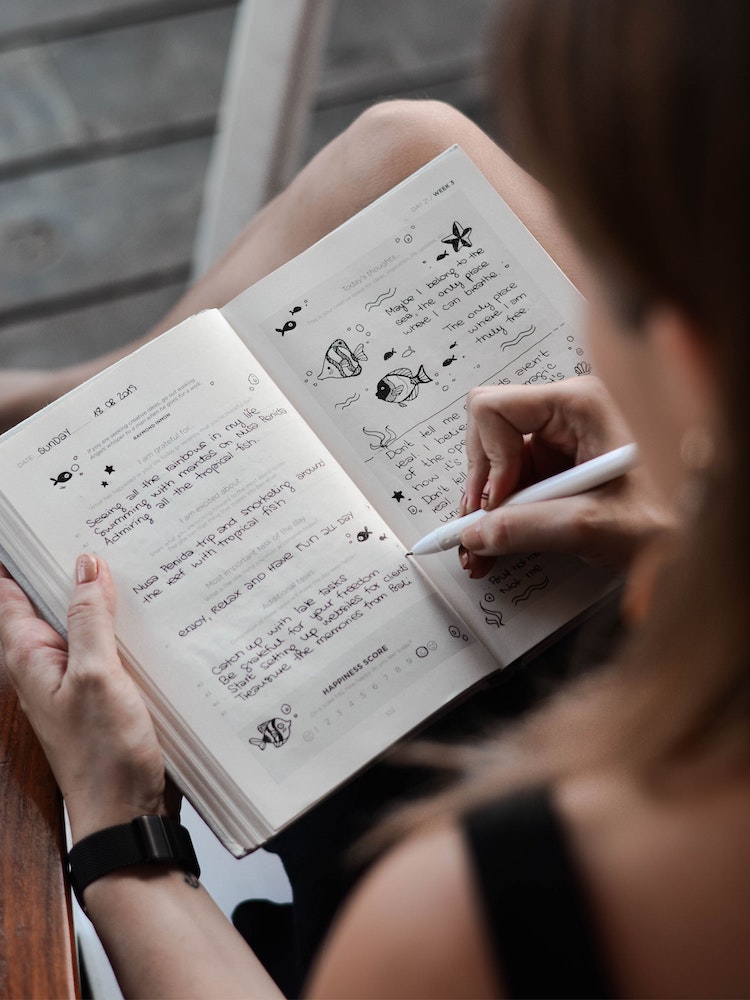
Photo: Prophsee Journals
- Thinking about the challenges in your life. What are some ways you can overcome them? We all have challenges. Some, of course, are bigger than others. While they might feel insurmountable, writing about them can help clear your mind and can offer a reminder that you’ve done hard things before and you can do them again.
- Write down your fears. How can you face them? When you name a fear, you’re taking away some of its power. So if you’re feeling fearful, write down what it is that’s scaring you. What about it makes you feel this way, and what are some concrete steps you can take to face your fears?
- Document your travels. Collect your thoughts at a cafe, save train tickets, and put photographs from your treks across the world. There are notebooks specifically designed for documenting trips you take, and these types of travel journals come with built-in pockets and prompts that will help you remember where you went.
- Name your emotions. Sometimes you can be feeling so many things that it can seem like your mind is beyond your control. To decrease anxiety and manage your emotions, use journaling as a way to name your emotions. In acknowledging them, you will have a clearer picture of what’s going on in your head. You'll also recognize that emotions are fleeting and don't define who you are.
- No judgment writing. If you want to write but are suffering from a bit of writer’s block, just start putting words on the page. Write whatever comes to mind. It doesn’t matter if your thoughts make sense or you’ll want to erase it all later—this is a no-judgment writing session, so there’s no wrong way to do things.

Photo: Yannick Pulver
- Write down your ideas. We all have ideas from time to time. For new projects, recipes—whatever you may find creatively engaging. Save a few pages for your ideas. Use this space to flesh them out and help bring them to life, or even sprout new ones.
- Take notes on something you watch or listen to. Is there a podcast you found particularly inspiring? A documentary you don’t want to forget? Take notes on it in your journal and write a reflection of the ideas presented in these programs.
- Write down your grudges. Things can fester in our minds if we aren’t careful. By writing them down, they find release. You might’ve heard the advice that if you’re angry at someone, write them a letter but don’t send it. It’s the same idea here: write down your grudges. Doing this might deflate them a bit and make them not feel so toxic.
- Create a bullet journal. If you’re looking for ways to get creative with your to-do list, habit tracking, and more, try the bullet journal method. This flexible approach combines writing, art, and more—it’s whatever you want it to be. You can simply write or add art to your bullet journal layouts for a bit of creative fun.
- Schedule worry time. Anxiety can affect many parts of your life. If you find that you’re worrying a lot, grab your journal and schedule worry time. Set aside 10 or 20 minutes a day where you write down all of the things that are making you fret—big and small. If you’re a solutions-oriented person, you can also spend some of that time trying to suss out answers to your worries. You will probably find that there’s no solution to some of your worries, and that’s okay. When they come back, just tell yourself that you have a “worry time” and can think about it then.
Related Articles:
Interview: How an Avid Traveler Chronicles His Adventures Through Illustrated Journals
19 Artistic Journals and Notebooks to Keep You Inspired to Create












































































